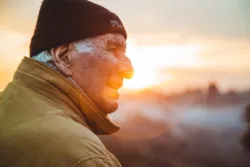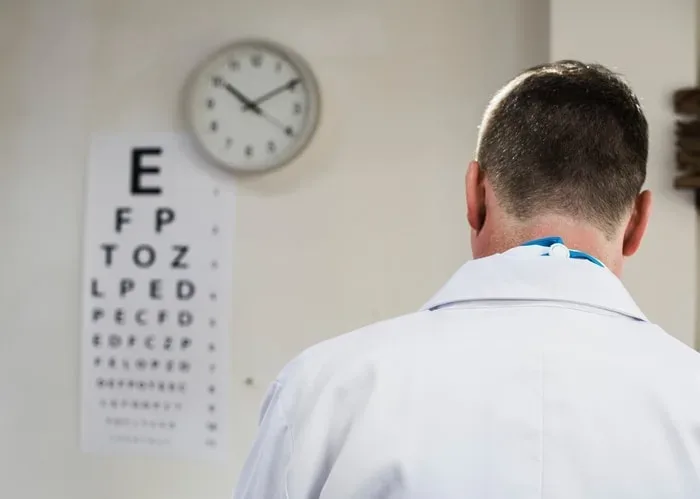
The death of a loved one is one of the most heart-wrenching experiences a person can live through. As we get older and our friends and family age and experience illness and injury, we experience loss more frequently and repeatedly.
Experiencing the loss of a loved one as we age has different dimensions than a loss in our younger years, too. We may experience more sadness, depression, hopelessness, loneliness and fear. While death deserves proper respect and grieving is a natural response to the loss of a loved one, there are ways to manage the pain and find meaning after loss.
Aging and loss
Many adults picture their lives as a curve on a graph, shaped something like a mountain. They may envision themselves climbing to greater heights as they fill their lives with experiences, knowledge and potential. As an older adult, it can feel like you’re on the decline of a mountain as your energy and experiences decrease.
It’s common to feel that aging and loss are connected. In fact, there are generally six areas of loss that are associated with aging.
- health and physical capabilities
- emotional relationships
- the loss of family and friends
- social opportunities
- lowered quality of life
- lowered cognitive abilities
While there are serious and significant losses that are connected to aging, grief shouldn’t cloud your perspective on aging. You can find meaning in your daily life despite hardship and there are concrete ways to make your life feel purposeful again. After all, your life isn’t a declining curve, but a continuous upward line towards greater things.
Dealing with grief and loss
Coping with a loss is easier said than done, and it’s unique to each person’s circumstances. When you’re dealing with grief and loss, there are some useful tools to get you through the hardest days that are common to everyone, though.
Processing emotions to heal the pain
First, you’ll likely find that in order to heal from an emotional wound you’ll need to process your memories and feelings. Whether you find journaling, talking or meditating to be effective, the more you explore those hard feelings, the sooner you’ll find acceptance and healing.
Often, this stage is accompanied by a mental health professional in the form of counseling. If you’ve never attended counseling before or are reluctant to try it, this might be the prime time to try it out. A counselor can be an objective, but the compassionate sounding board as you embrace your emotions and take actionable steps towards emotional wellbeing.
Coping with loss using rituals
In addition to processing your emotions, one of the best tools for coping with loss is to participate in rituals. If you subscribe to faith practice, it’s likely there are already routines and rituals that accompany a death. A funeral, a ceremony, burial or another cultural practice will likely occur.
These rituals are useful for having a tangible reminder of your loved one’s life and the reality of death. Rituals can keep you from falling into denial and offer an opportunity for collective grief. Expressing grief through crying or sharing stories is encouraged and can be a step towards recovering from the pain of death.
Take care of yourself
When a loved one passes away, we may be so overwhelmed that we neglect ourselves. Especially for older adults, this can be hazardous. Grief reactions by age will differ, but older adults may forget to take medications, fail to attend medical appointments or give up on healthy practices like exercising or wholesome eating.
Lean on family and community
When you experience the death of a loved one, you may have an inclination to recede into yourself and isolate yourself from others, keenly feeling the pain of a severed relationship. Although it may feel harder than ever to reach out, now is the most important time to do so.
In coping with a loss you’ll find that your community is one of your strongest assets, even if you have a hard time engaging post-loss. Chances are that your family will understand without you needing to say a word and they’ll support you in whichever way you ask.
Find healing
Grief reactions by age are unique, but dealing with loss as you age is an inevitable lesson to learn. It’s in your best interests to find healthy coping mechanisms and address emotional distress. The more you invest in healing from grief, the better quality of life you’ll experience and the more you’ll enjoy this period of your life.
When a loved one dies, you’ll also be faced with addressing your own mortality. Guilt and fear are common, but the goal is to feel peace about your own aging mind and body. While healing can feel centered on the loss of another person, it’s important to remember you need to heal within, too.
Dealing with grief and loss is hard on your own. If you’re struggling to overcome the sorrow that follows a loss, reach out to the Light Program. At the Light Program, you’ll learn to understand your grief, heal from pain and preserve meaningful memories. You’ll develop hope for the future and enjoy your life again. Call today to schedule an appointment.






